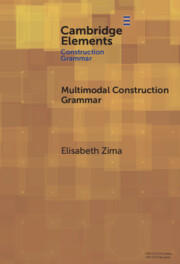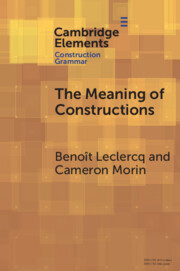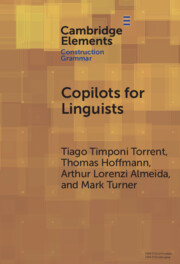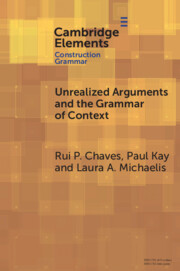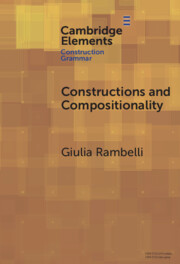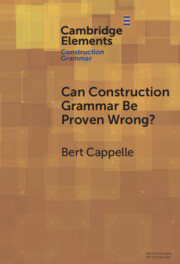Series Editors
Thomas Hoffmann is Full Professor and Chair of English Language and Linguistics at the Catholic University Eichstätt-Ingolstadt. His main research interests are usage-based Construction Grammar, language variation and change and linguistic creativity. He has published widely in international journals such as Cognitive Linguistics, English Language and Linguistics, and English World-Wide. His monographs Preposition Placement in English (2011) and English Comparative Correlatives: Diachronic and Synchronic Variation at the Lexicon-Syntax Interface (2019) were both published by Cambridge University Press. His textbook on Construction Grammar: The Structure of English (2022) as well as an Element on The Cognitive Foundation of Post-colonial Englishes: Construction Grammar as the Cognitive Theory for the Dynamic Model (2021) have also both been published with Cambridge University Press). He is also co-editor (with Graeme Trousdale) of The Oxford Handbook of Construction Grammar (2013, Oxford University Press)
Alexander Bergs joined the Institute for English and American Studies of Osnabrück University, Germany, in 2006 when he became Full Professor and Chair of English Language and Linguistics. His research interests include, among others, language variation and change, constructional approaches to language, the role of context in language, the syntax/pragmatics interface, and cognitive poetics. His works include several authored and edited books (Social Networks and Historical Sociolinguistics, Modern Scots, Contexts and Constructions, Constructions and Language Change), a short textbook on Synchronic English Linguistics, one on Understanding Language Change (with Kate Burridge) and the two-volume Handbook of English Historical Linguistics (ed. with Laurel Brinton; now available as 5 volume paperback) as well as more than fifty papers in high profile international journals and edited volumes. Alexander Bergs has taught at the Universities of Düsseldorf, Bonn, Santiago de Compostela, Wisconsin-Milwaukee, Catania, Vigo, Thessaloniki, Athens, and Dalian, and has organized numerous international workshops and conferences.
